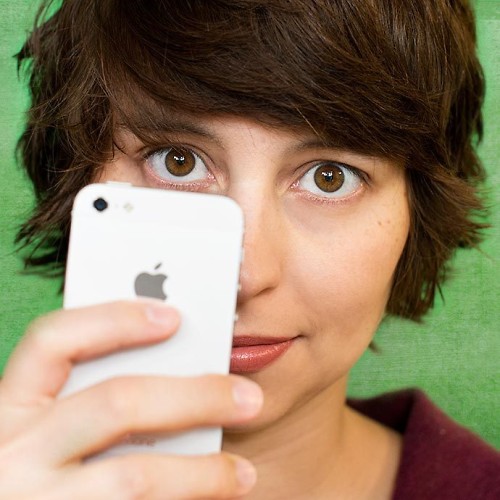AT&T vs Verizon: Which shared data plan should you get?
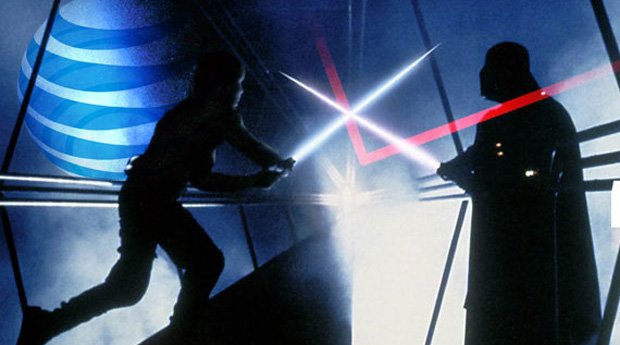
AT&T is launching shared data plans in August and Verizon has had them for some time now. Both carriers follow a similar scheme: a base price plus an additional cost per iPhone and iPad added to the plan. Both Verizon and AT&T also include unlimited voice and text.
So what's the difference? Will any of them actually save you money? If so, which one will save you the most money?
Verizon shared data versus AT&T shared data
Here's a pricing comparison chart for Verizon and AT&T. Both carriers charge a base fee, labeled as the "monthly price", then charge an additional price for each smartphone included in the plan. For Verizon, the smartphone fee is a straightforward $40 per phone, but AT&T has a tiered pricing that decreases as the amount of data goes up. Both AT&T and Verizon charge $10 for each tablet added to the plan.
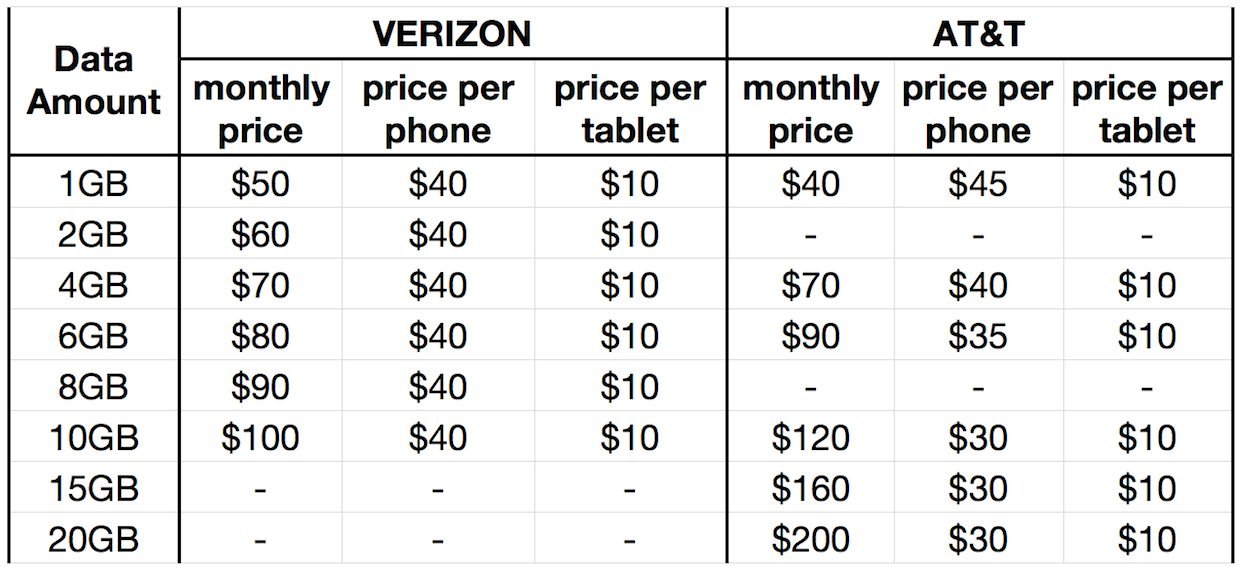
Comparison of total costs for plans
Now, although the above chart gives an accurate depiction of the prices on each carrier, the first thing you have to do is add up the appropriate numbers to figure out what your family's plan would cost. But let's just do that for you! Here's a chart that compares the prices on Verizon and AT&T for two, three, and four smartphones.
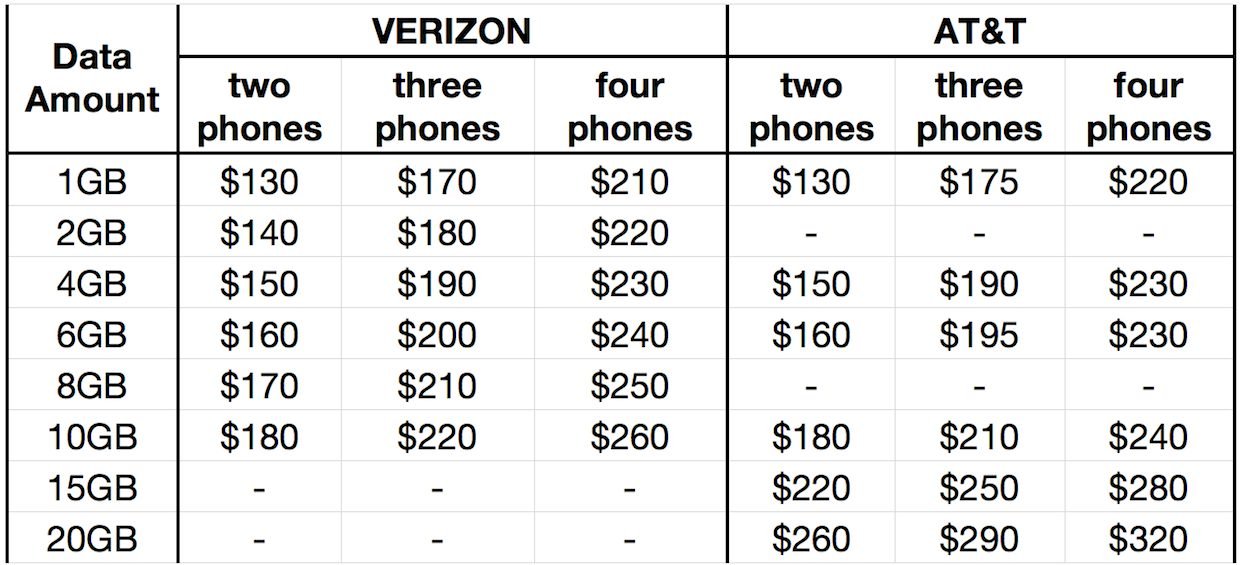
So, for two phones, AT&T and Verizon's prices are exactly the same. However, for three and four phones with 6 or 10 GB, AT&T is $5-$20 cheaper per month. That's a difference in $60-$240 per year!
This chart does not include tablets, so make sure you add an additional $10 for each tablet you anticipate adding to your plan.
LTE availability
In addition to price, you must also consider where each carrier offers coverage and if you're within that area. Here's a side by side comparison of Verizon's and AT&T's coverage maps (left is Verizon, right is AT&T). The iPhone 4S does not support LTE, but we're pretty certain that the iPhone 5 will support LTE, so LTE coverage is definitely something to consider.
Master your iPhone in minutes
iMore offers spot-on advice and guidance from our team of experts, with decades of Apple device experience to lean on. Learn more with iMore!
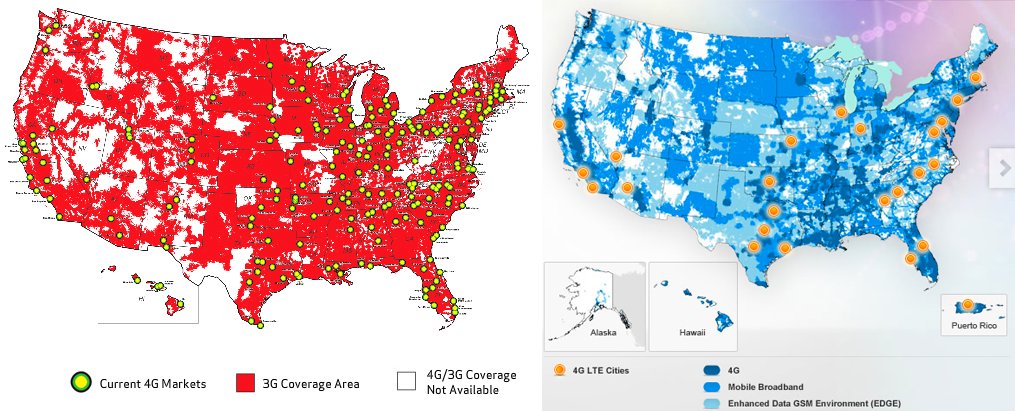
Clearly, Verizon has much more LTE availability (green dots vs orange dots.) If you live in an area where Verizon offers LTE and AT&T does not, your best bet is to probably go with Verizon, providing that their network is pretty solid in that area. If you're not sure, ask your family, friends, and coworkers who have LTE phones on Verizon's network.
If LTE is not available to you on either network, the next thing to look at is 3G (or "4G" -- ugh!) coverage. In general, AT&T HSPA data is much, much faster, but also less reliable than Verizon EVDO rev A data. Verizon voice is typically better than AT&T voice. If AT&T is solid in your area, that's the way to go. If not, or if you live somewhere that only gets EDGE 2G on AT&T (light blue on AT&T's map), Verizon is the way to go.
Most of you, however, will be in one of these last two categories: an LTE available area on both Verizon and AT&T, or, in a 3G, but not LTE available area on both Verizon and AT&T. For those of you in this category, I'm inclined to recommend AT&T, provided that the 3G network is stable in your area. Again, ask your friends, family, and coworkers for their experience.
You can get a closer look at AT&T's coverage map here and Verizon's map here.
Making the choice
So which one are you going to choose? Personally, since I'm already an AT&T subscriber whose grandfathered into an unlimited data plan, I probably will not be making the switch to Verizon. However, if I was a new subscriber, I would be tempted to go Verizon since they have much more LTE coverage. What about you? Which carrier and plan will you choose? And will your answer be different when the iPhone 5 is released?
Former app and photography editor at iMore, Leanna has since moved on to other endeavors. Mother, wife, mathamagician, even though she no longer writes for iMore you can still follow her on Twitter @llofte.
